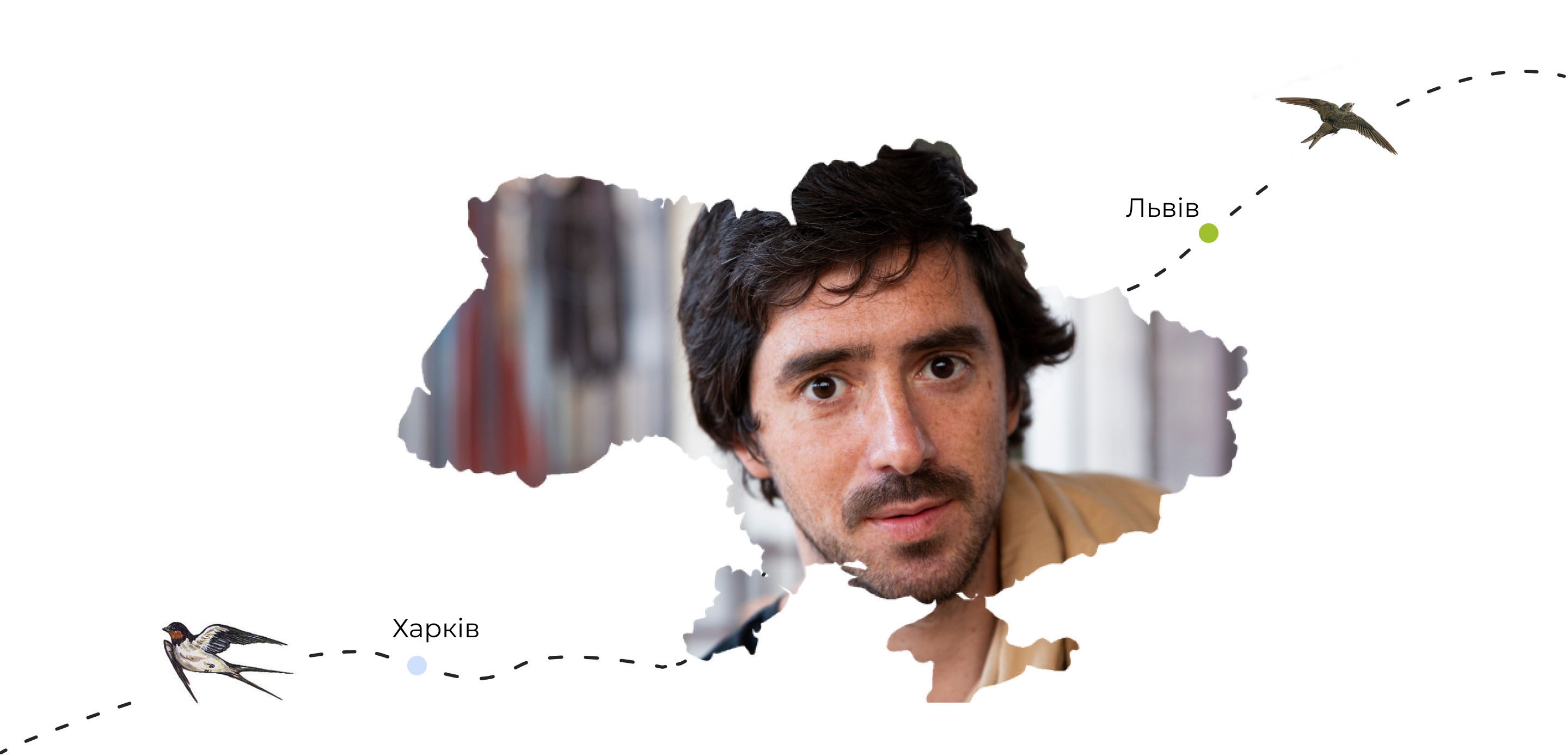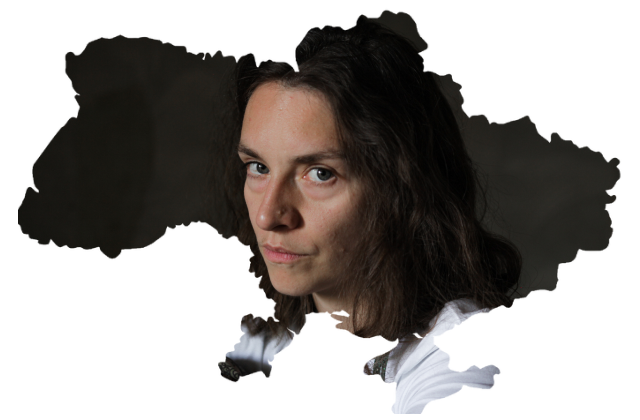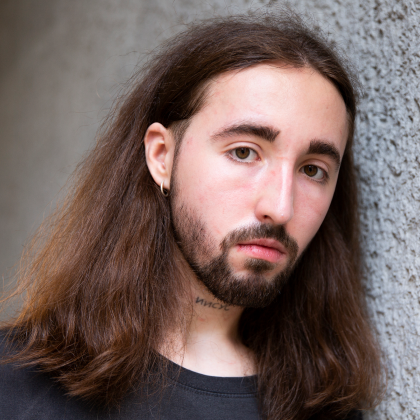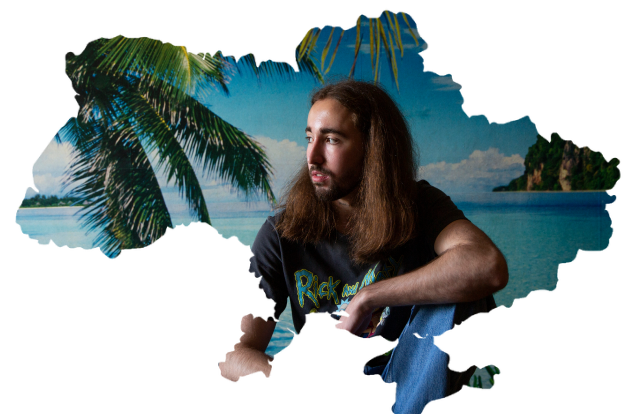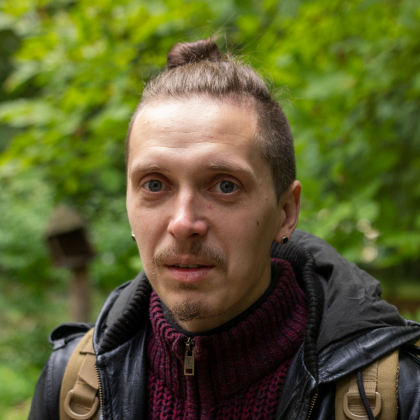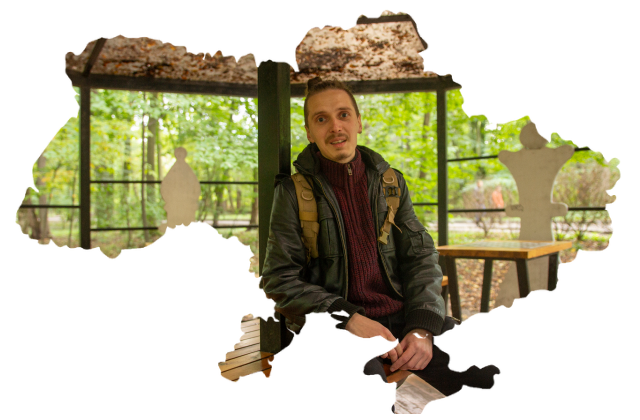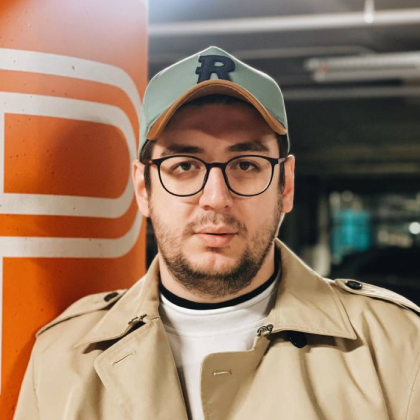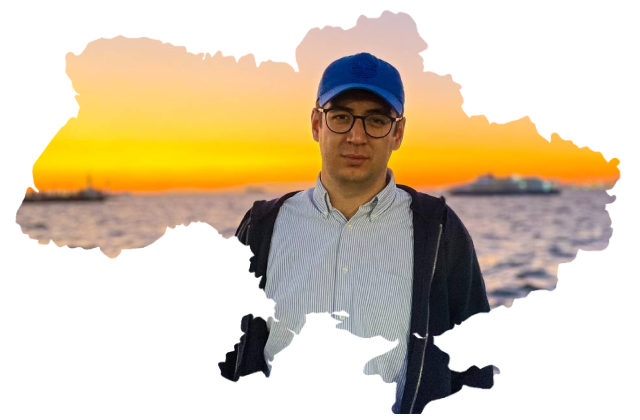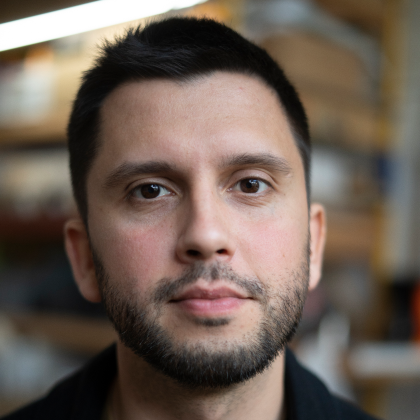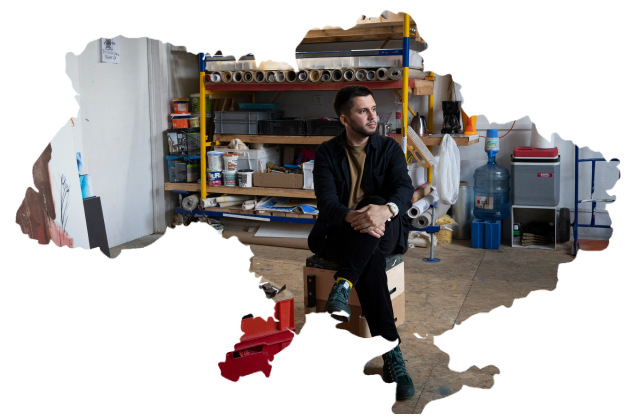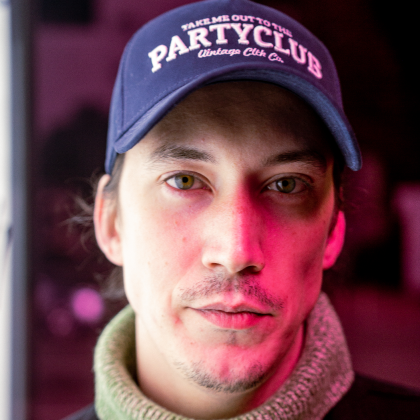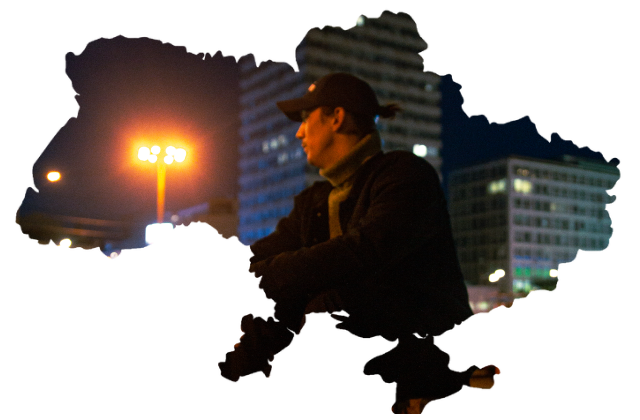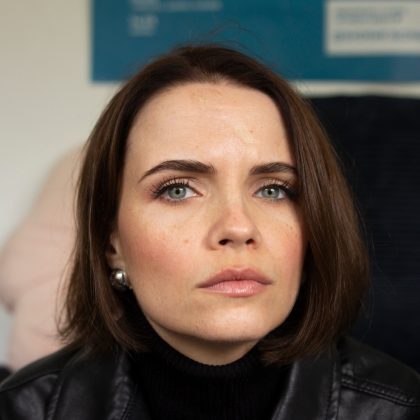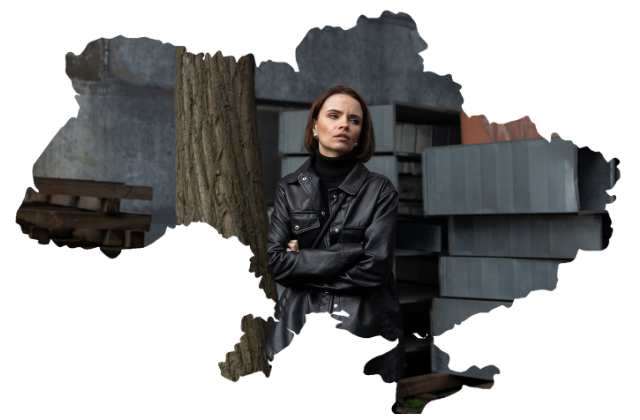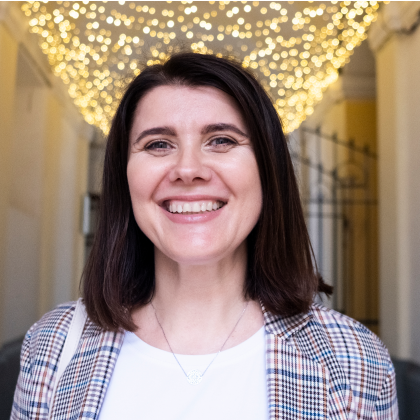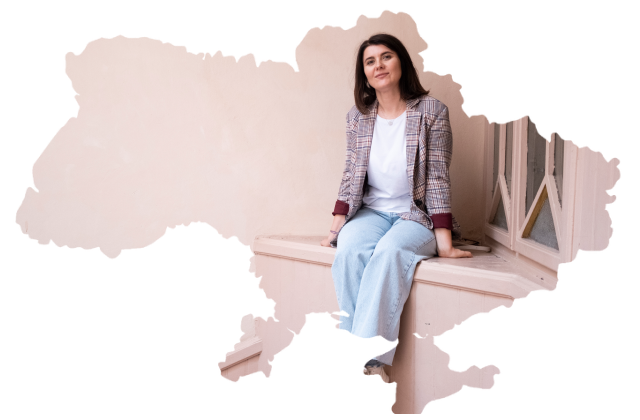Andrii Skrypka
artist, designer.
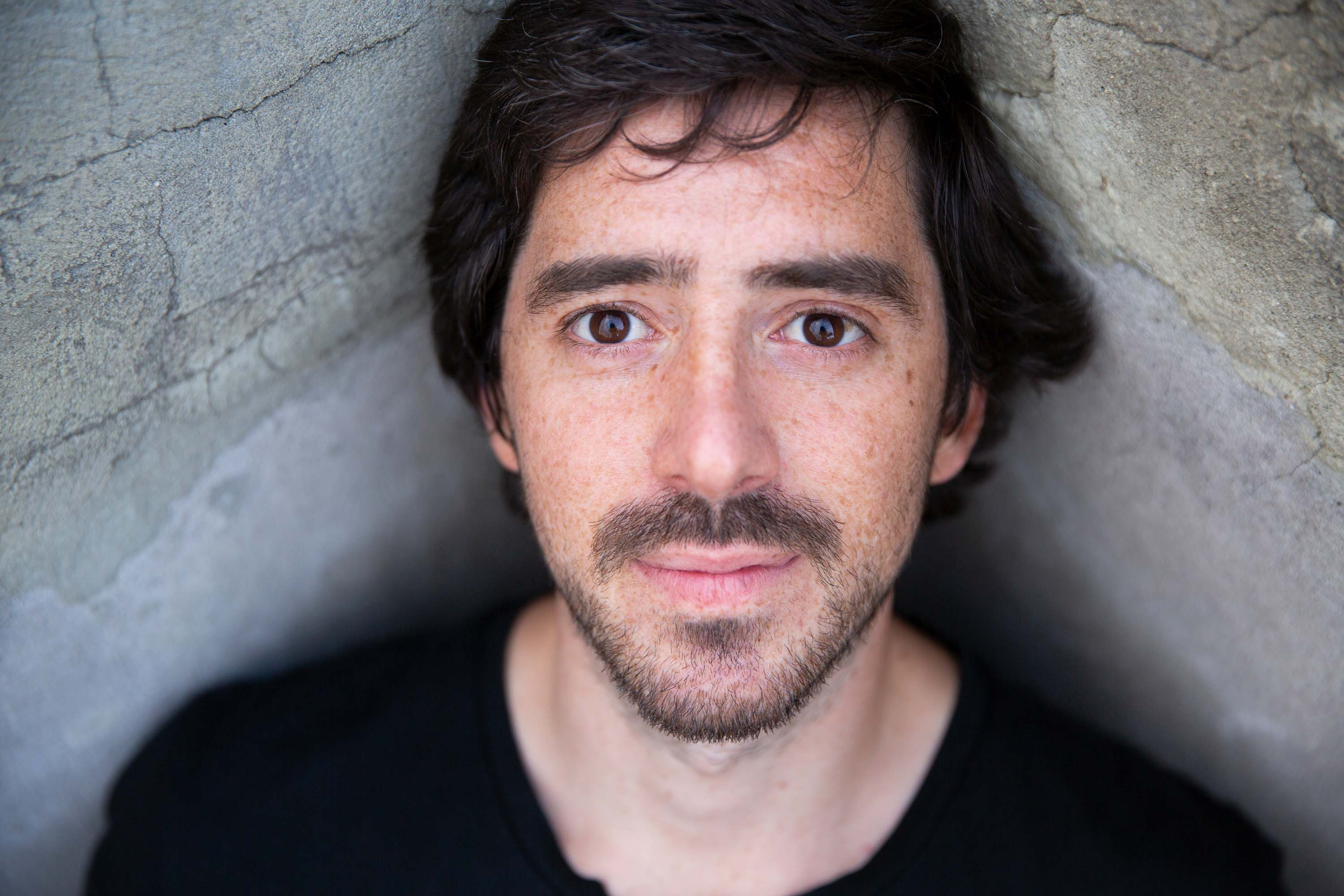
Kharkiv — Lviv
I am from the city of Kerch, half-Udmurt, half-Ukrainian. In 2007 I went to Kharkiv to study at the Academy of Design and Arts and decided to stay in this city to build my future life. Here I have started a family: my daughter Agnesia is now eight years old and my son Veniamin is three. The war separated me from them and forced me to leave the city that had become my home.
To be honest, I was not at all prepared for a full-scale war. The day before the war started, my design team and I had been preparing an interesting project for Kharkiv. We were designing a large sculpture for an IT park, trying to merge art with the city. We made a presentation, calculated the budget, and tried to work productively in spite of the daunting information. I even have sketches that I drew on February 23 on public transport.
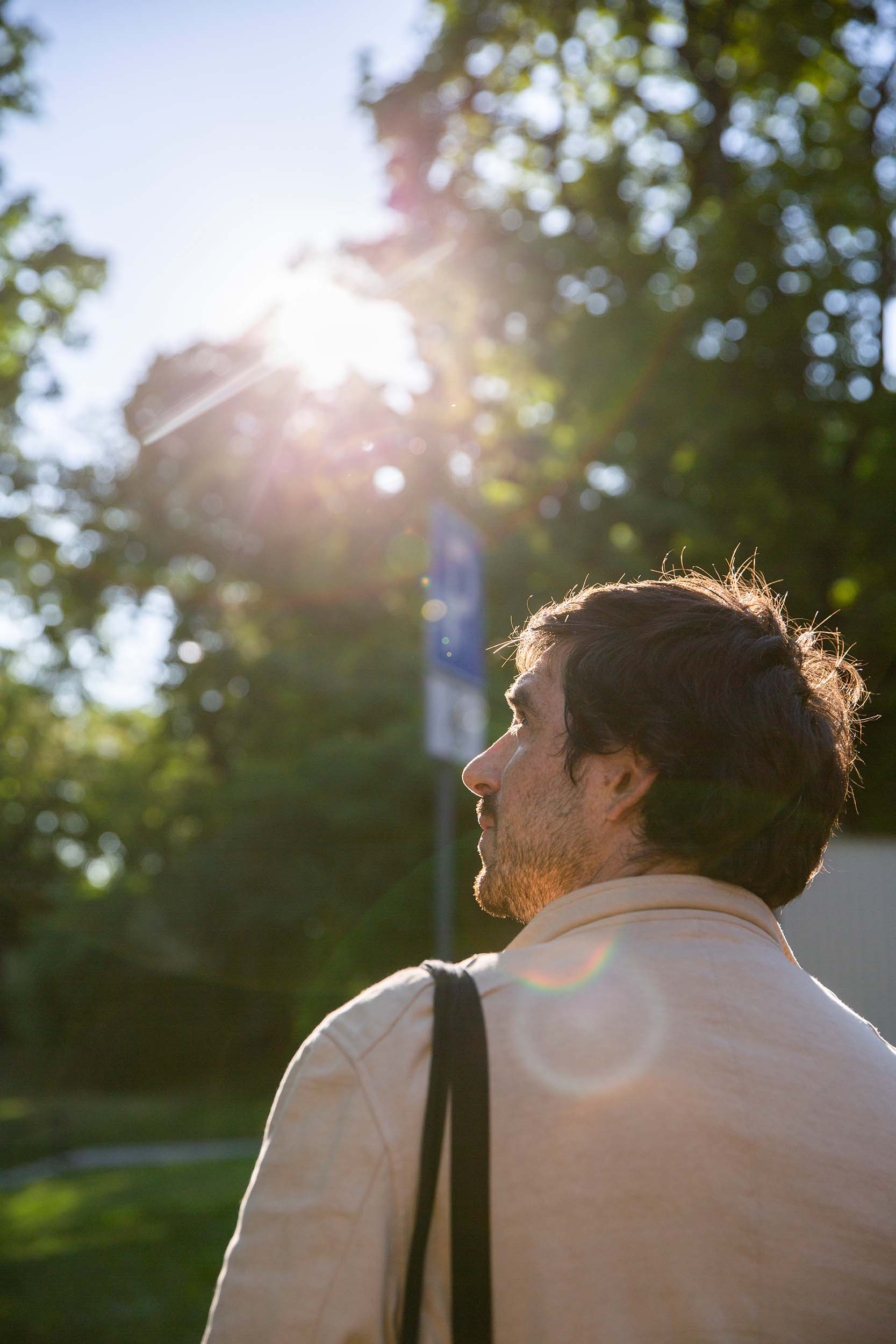
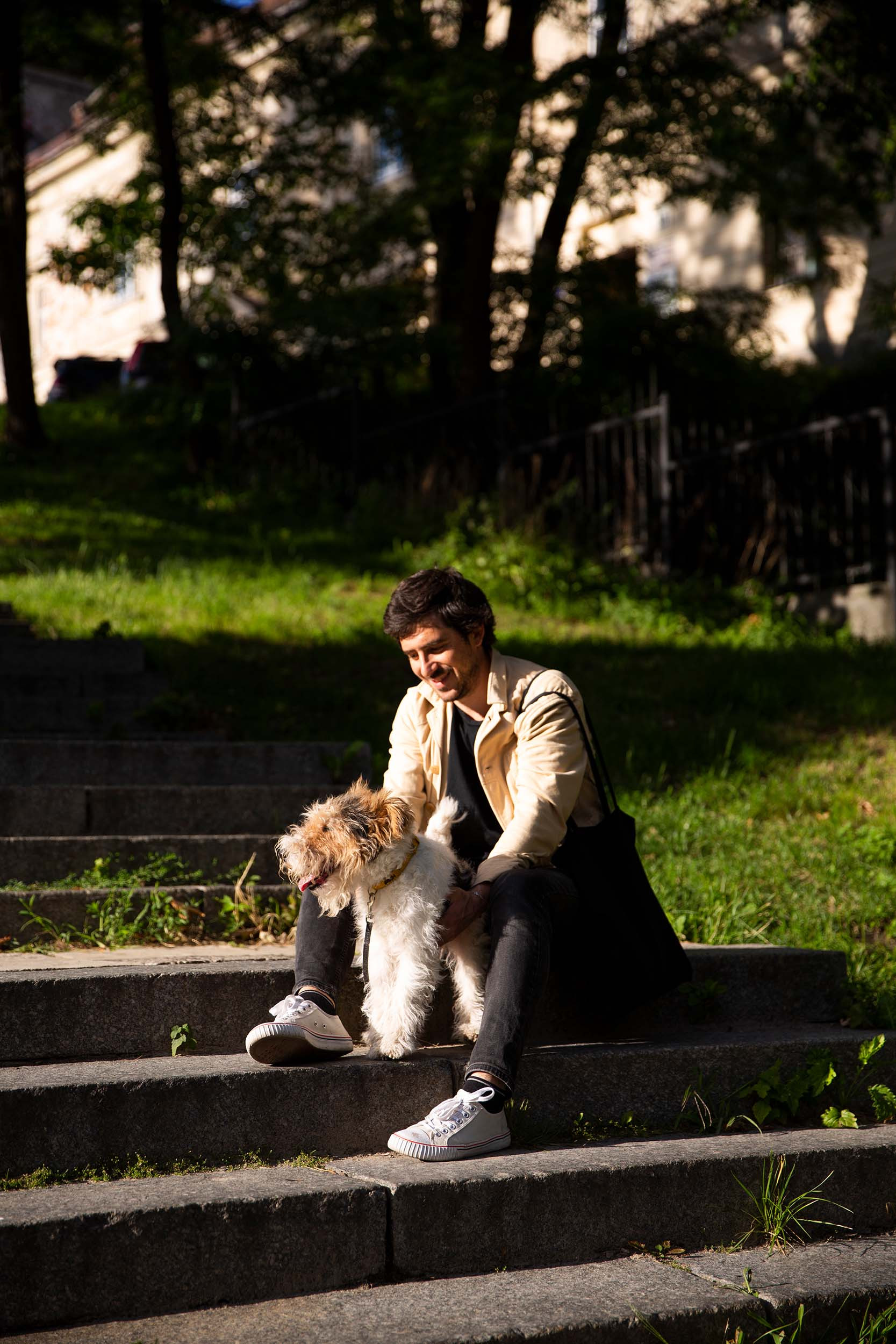
On the night of February 24, at five in the morning, all my family woke up to explosions with a clear awareness that a war had broken out. We lived near the airport in a private residential area. The houses there have no basements because the groundwater is low. So there's nowhere to hide. The nearest shelters are very far away.
I was scared for my children, they shouldn't have had to go through all this. However, even after the war started, my wife Oksana did not want to leave the city. So we prepared some food supplies that day and bought medicine. There was a spring nearby, our summer kitchen had everything we needed to live independently, to provide heating for a certain period of time if there was no gas or light. We thought we would wait it out, hoping the war would be short. For my wife, moving felt like a little death, so she waited until the last minute.
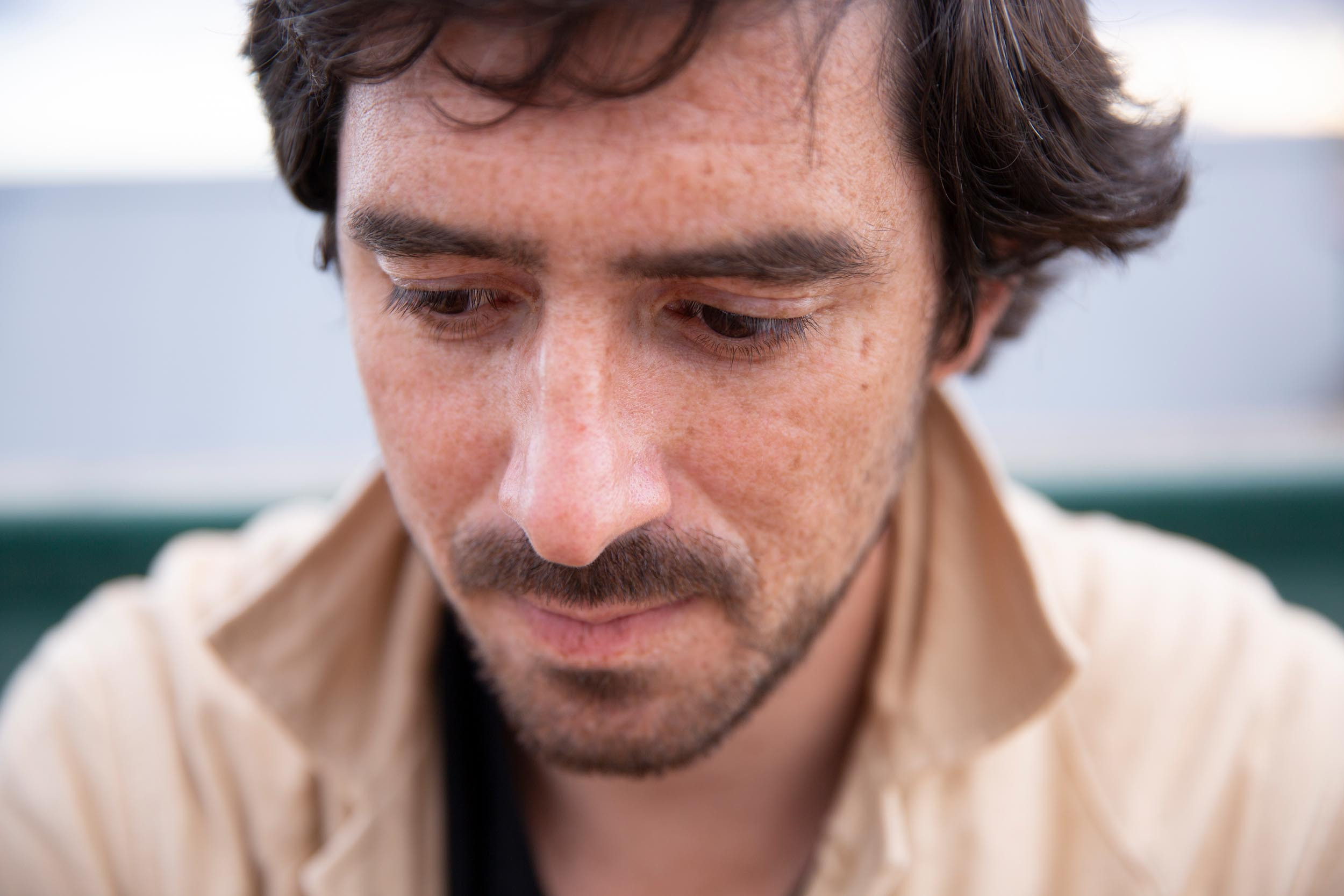
I finally convinced Оksana to leave, as it was a question of taking responsibility for our children's lives. Even before the war, I had been following some military analysts. This made me think critically. The final straw was my cousin's personal encounter with the Tigers (Russian military Tiger-M SpN armoured vehicles) in Saltovka and the firing of two powerful missiles at the city centre on March 1. I realized that if these things were happening, worse things could happen.
The easiest and quickest way to get out of the city was through the railway station, as you avoided traffic jams and transportation problems. On March 3, Oksana with our children and my mother-in-law left Kharkiv for Ivano-Frankivsk and from there to Yaremche. In Yaremche they stayed for a whole week in a house with many of their relatives, who travelled from all over Ukraine with their children. For the little ones, this was a kind of vacation in the Subcarpathian region. For me, this war is a complete paradox because it has united the whole family, despite all our internal conflicts.
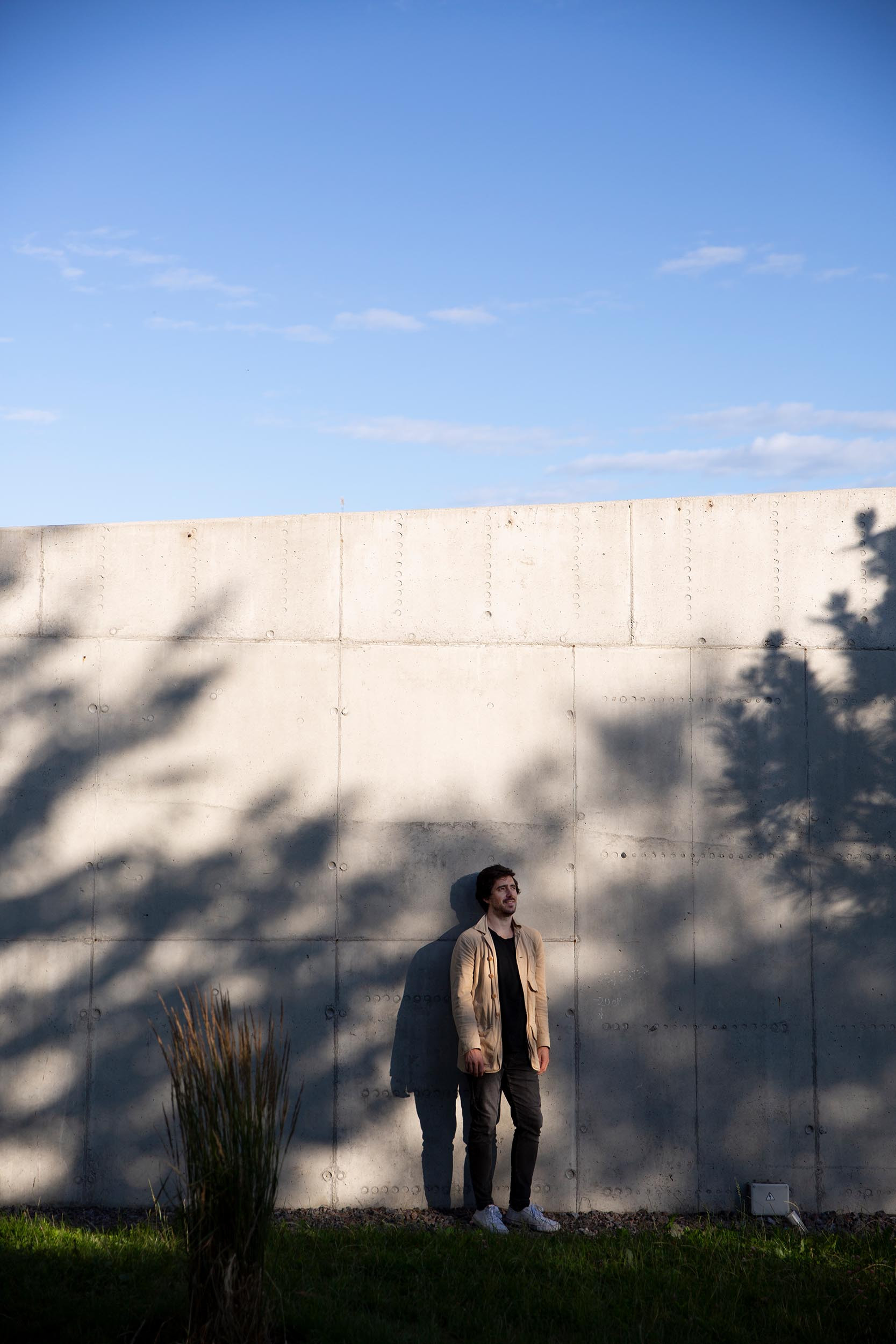
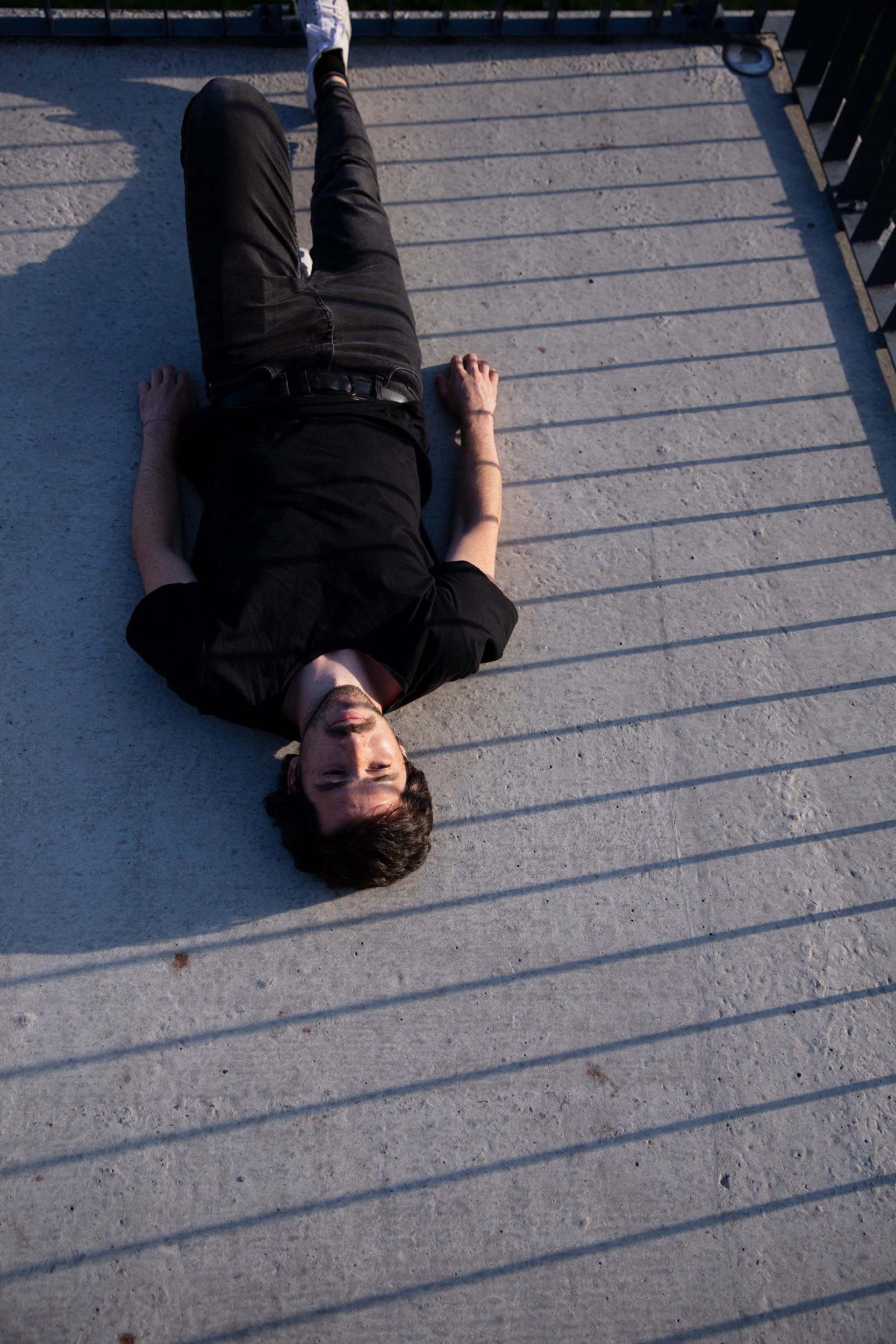
Our plan was to get to Germany because my cousin had been living in Munich for many years and his wife was a volunteer there at that time. This was an important contact because they informed me about German legislation, foundations that helped, and other essential issues that you can't find out about without having someone you know in Germany. I knew where my children would go and I reassured Oksana that they would be met and everything would be fine. So now they are in Munich, in excellent condition.
I began to analyze the situation and try to build a framework for further action. On March 4 I went to the store, saw the queues and realized that Kharkiv was on the verge of a humanitarian crisis. I didn't think it was a good idea to wait for food or medicine to be brought to me, because I am not a child, I could leave the city and do more good somewhere else rather than remaining there waiting.
I took my dog and the most important things to me: documents, photos, a laptop and other equipment that allowed me to work. On March 5 I was already in Lviv. In this city, the Kharkiv community grew daily, and I had a better chance of finding a place to stay. And so it happened: I was housed at a place, owned by friends of a professor at the Academy of Design, my alma mater. I found myself among modern artists and professors of higher mathematics.
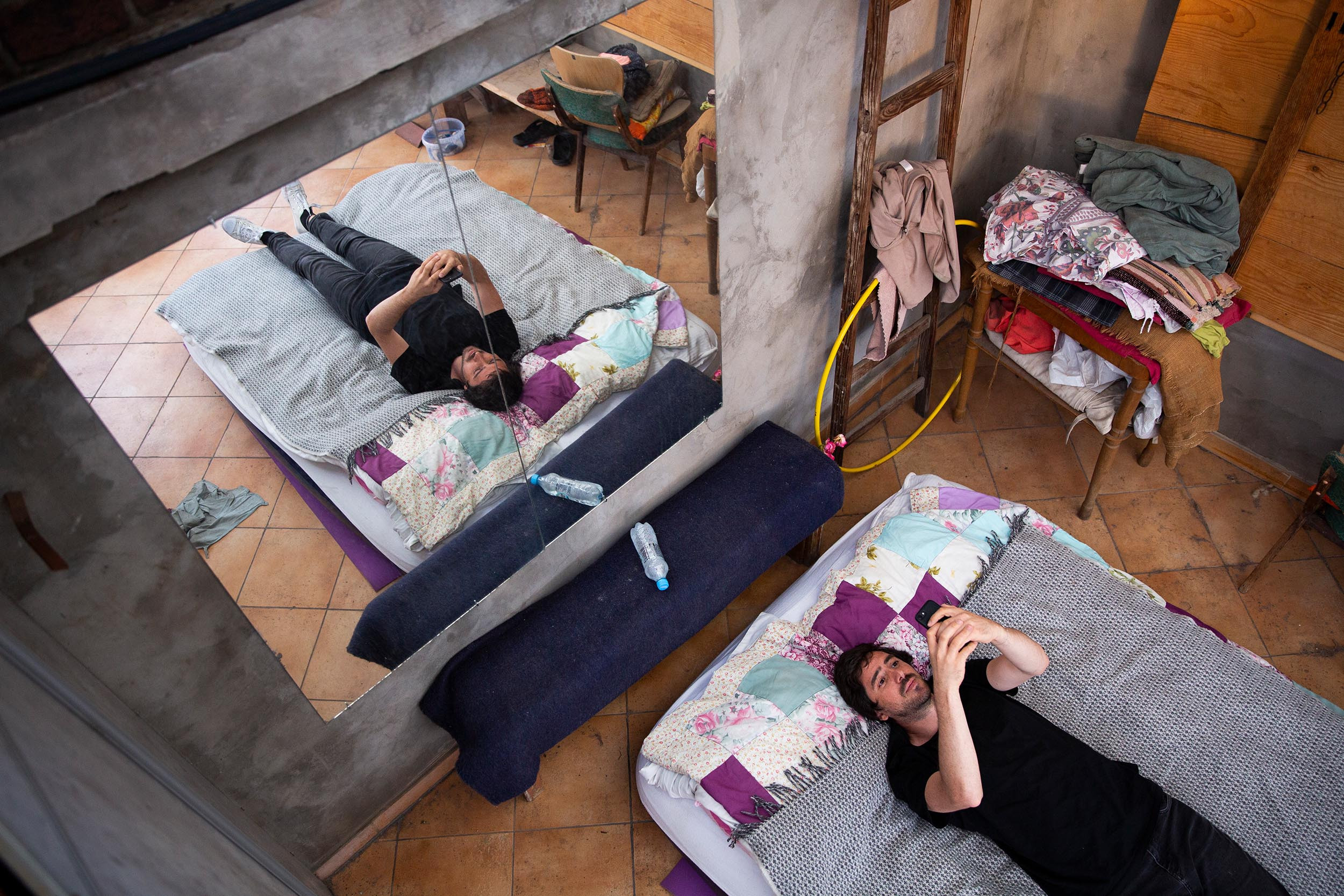
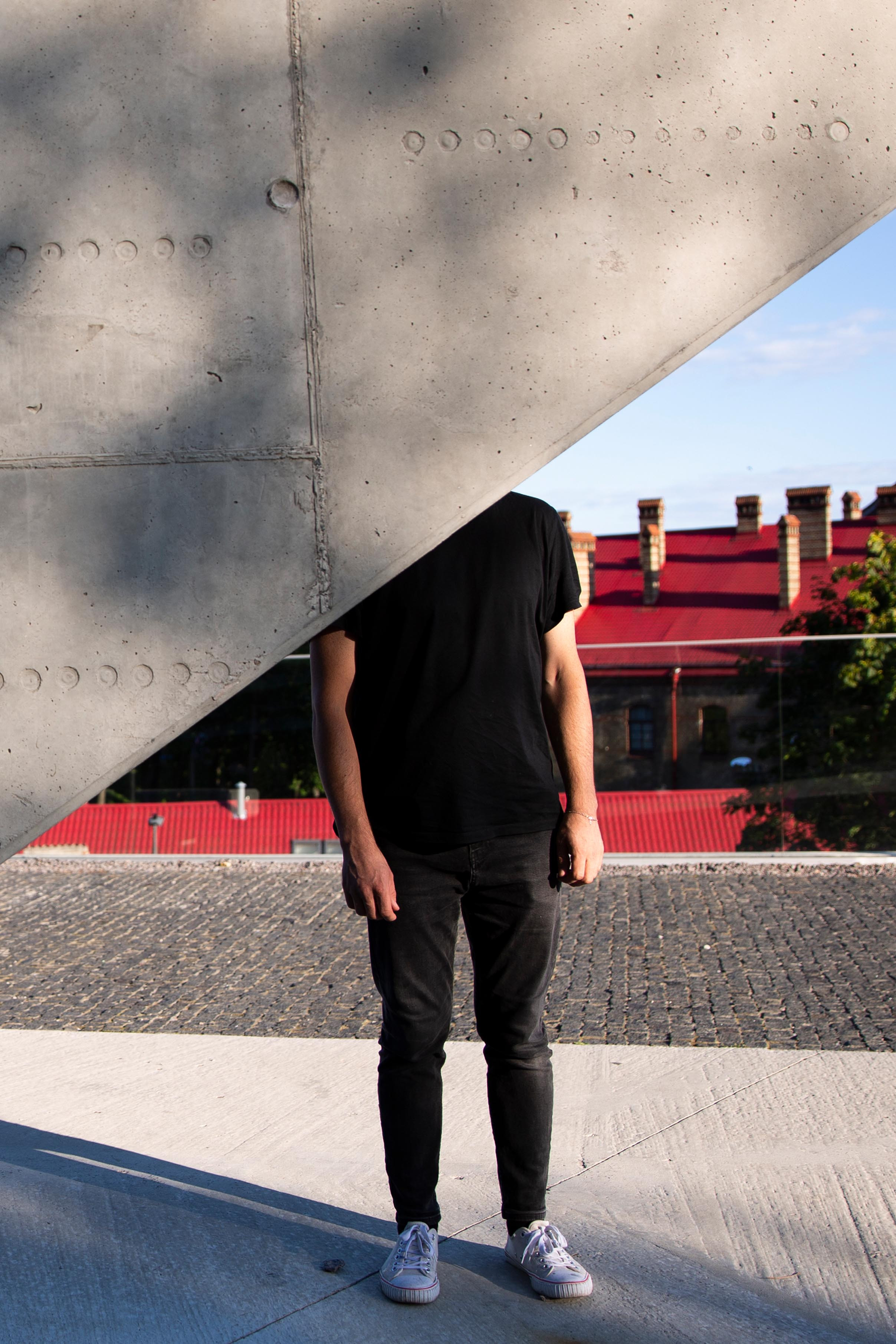
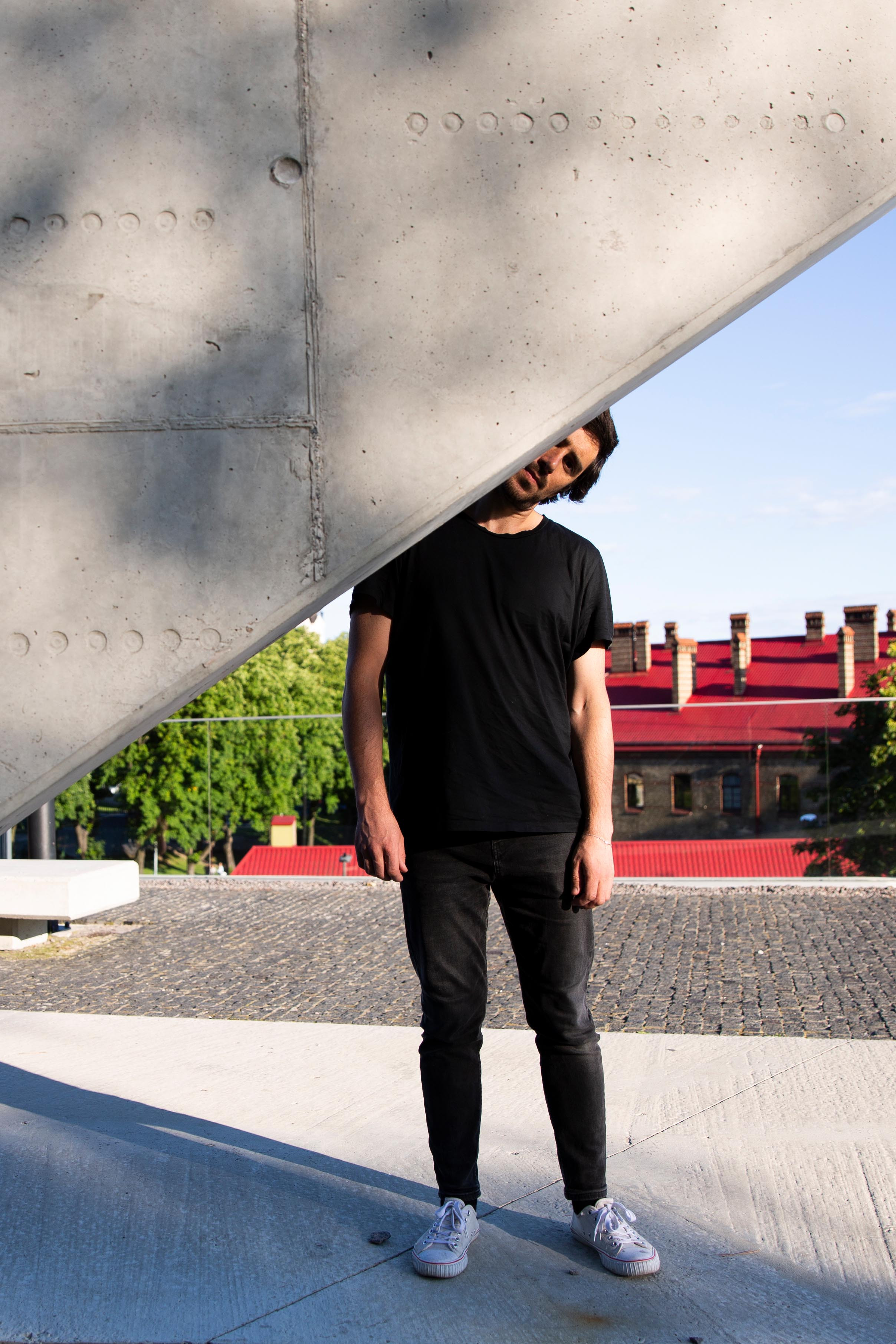
When the war started, it was as if I was holding my breath, I stopped painting. And when I got on the train, leaving Kharkiv, I began to breathe again — to breathe art. By the way, it was the first time in my life I had not picked up a brush for such a long time. Only a few weeks after the war began, when my family was safely abroad and I was in Lviv, I began to paint again.
I felt that war brought to light the most valuable things because now every day matters greatly in terms of what you spend your time on and exactly what you devote your art to. I have a phrase: "What you encourage, you get." So I bought sketchbooks, watercolours and other art materials in Lviv as if encouraging myself to paint all the time. I realized that I could depict and capture things in my memory forever, even if my work then gets destroyed. I began to recreate the circumstances of this pulsating time everywhere: drawing on the train, at the station, documenting what was happening through my sketches. Thanks to a friend, my sketches with the story of my move were printed in Hong Kong.
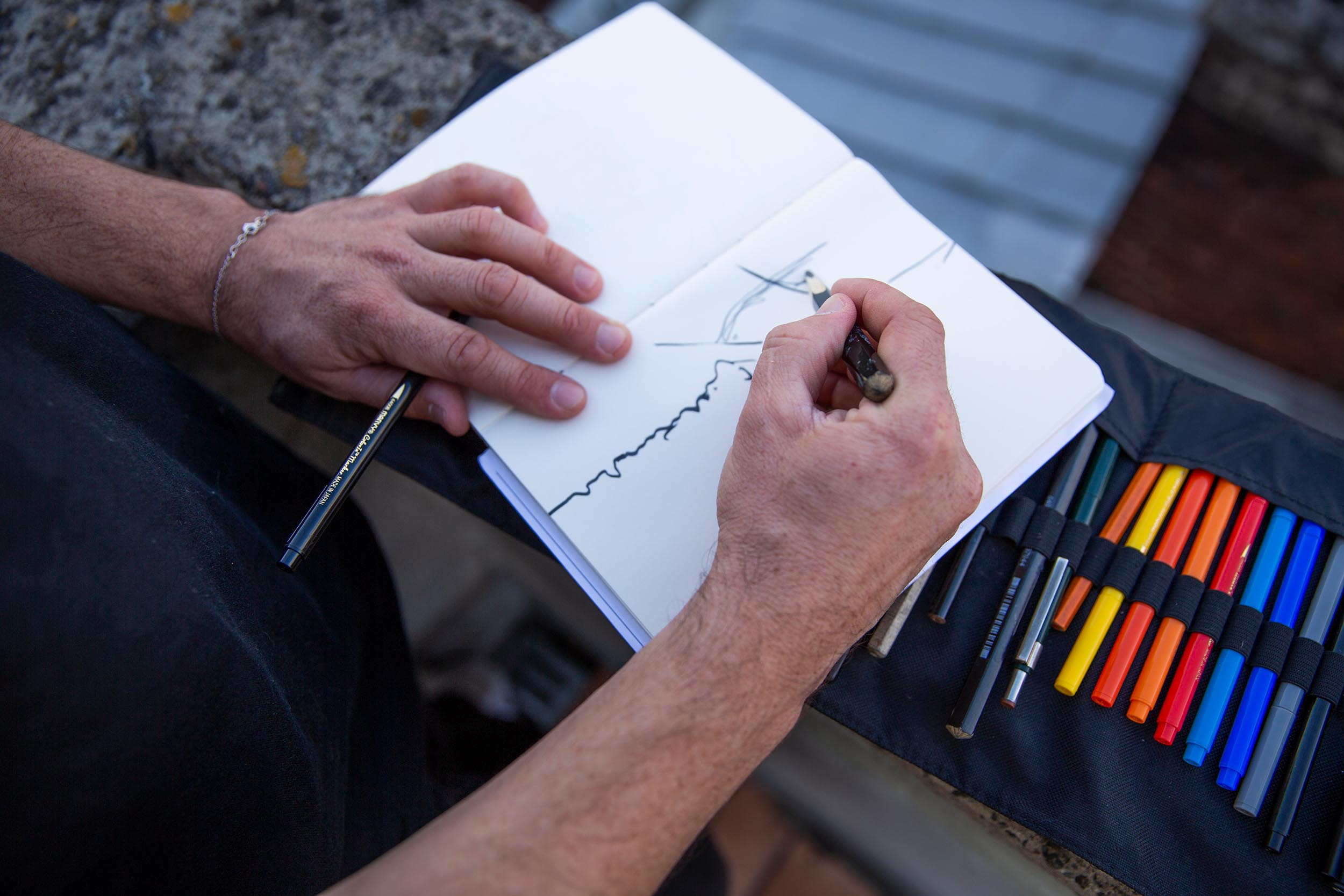
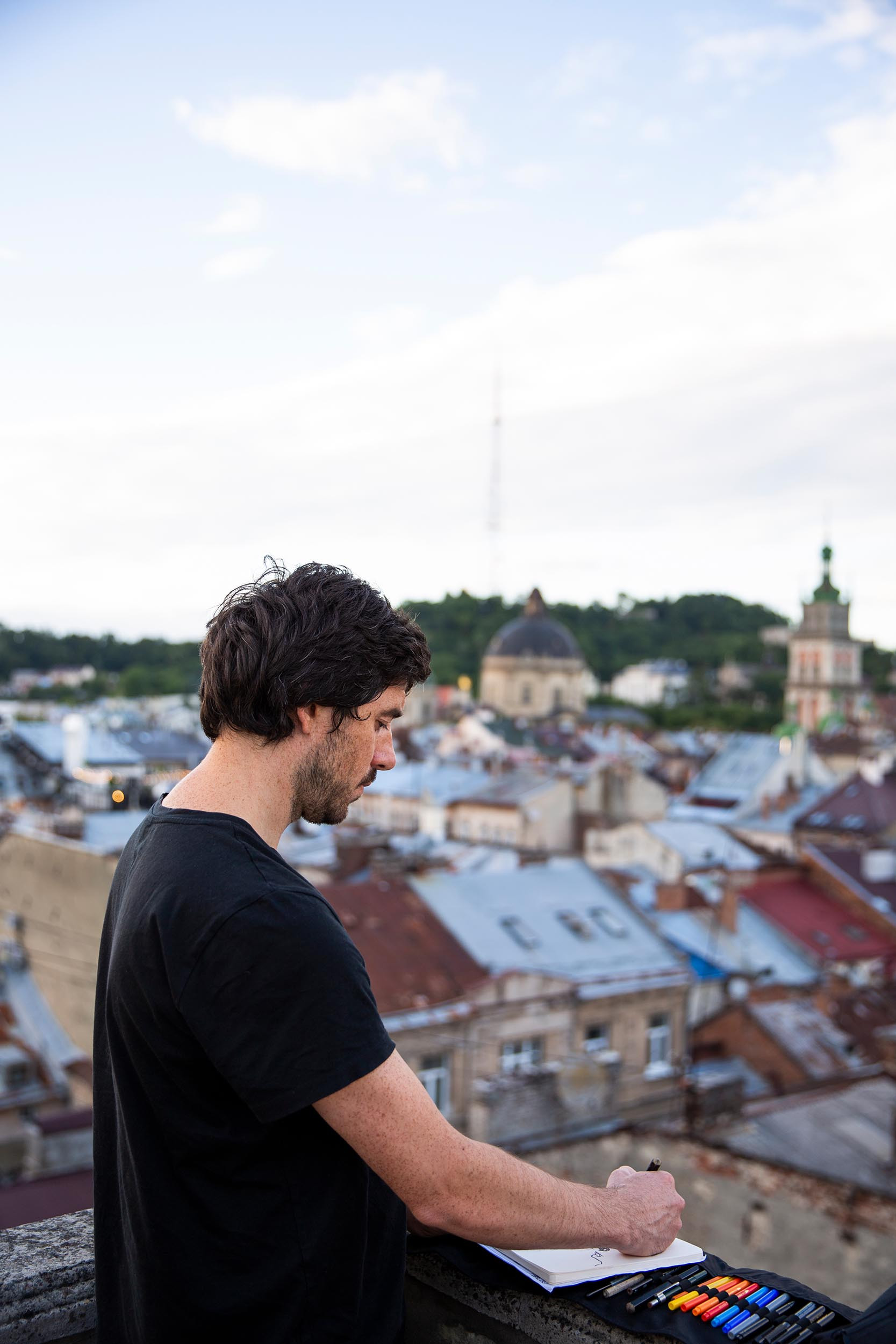
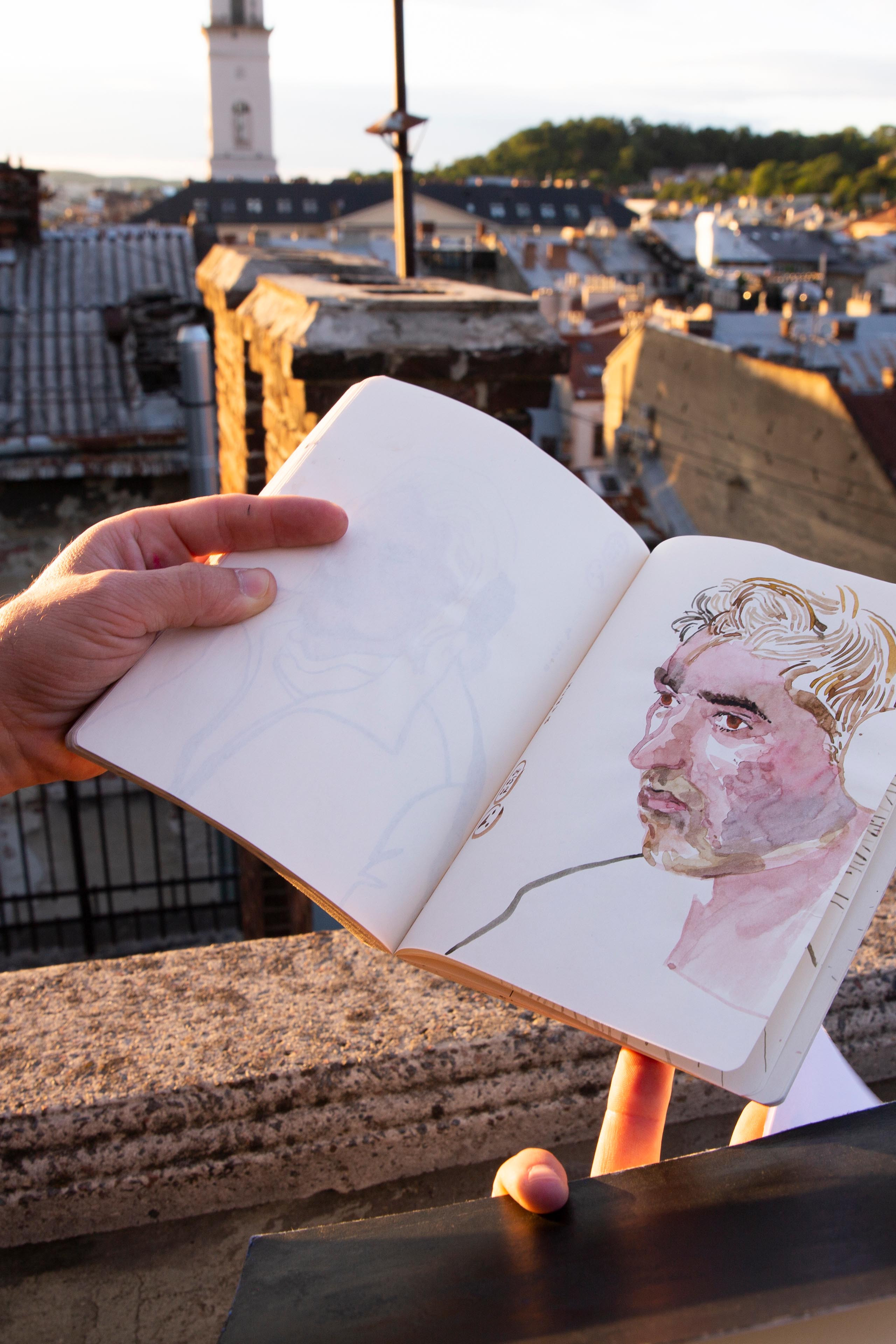
During the war, I got two sketchbooks: black and white.
The black one included the earliest war period: five February drawings on the eve of the war; the interval when I did not draw, as a symbol of danger and the uncertain future; the first March sketches upon my arrival in Lviv. This sketchbook depicted sadness for Kharkiv, sketches from bomb shelters, abstractions on the theme of waiting spaces because this is a theme I work with all my life, and my reflection on the human pain I experienced in everything in the first days of the war.
The white sketchbook included already a completely different experience — a time of acquiring a new community of Kharkiv and Lviv residents, as of something bright and beautiful. Because now I am among people united by a cultural understanding of life, relationships and behaviour. They are the ones who created the Kharkiv Volunteer Headquarters in Lviv to organize different cultural events, streams, and communication with the Lviv community on how to help Kharkiv residents. I also help to transport artists' works. All these small actions lead to interesting discoveries, and opportunities, which the new space provides.
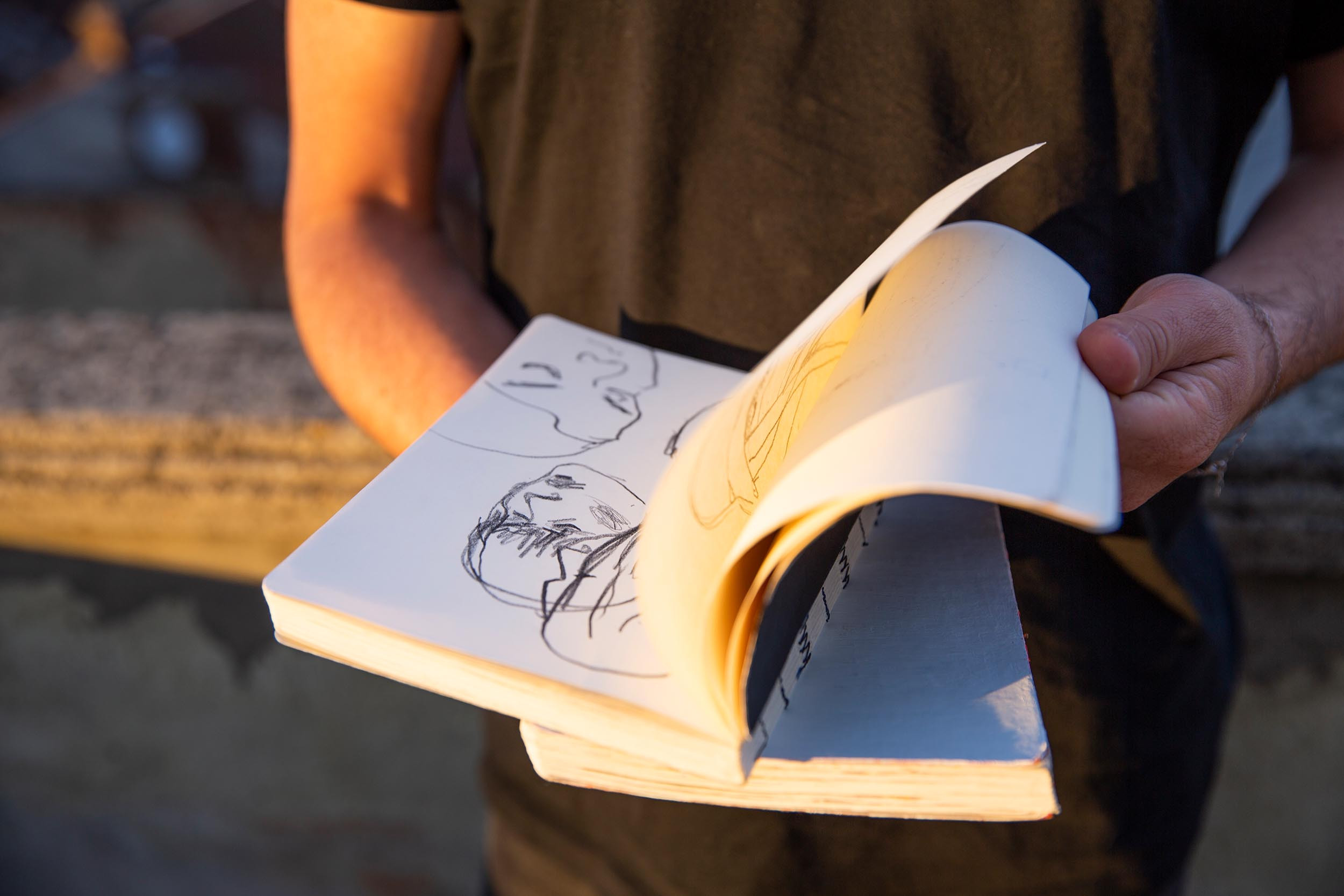
All of us here from Kharkiv dream of returning for the sake of rebuilding the community that was formed during the war, for the sake of forming a completely new Kharkiv. I'm very interested in this and would like to be a part of it because I'm inspired by the Kharkiv people I met in Lviv. And this is my main discovery.
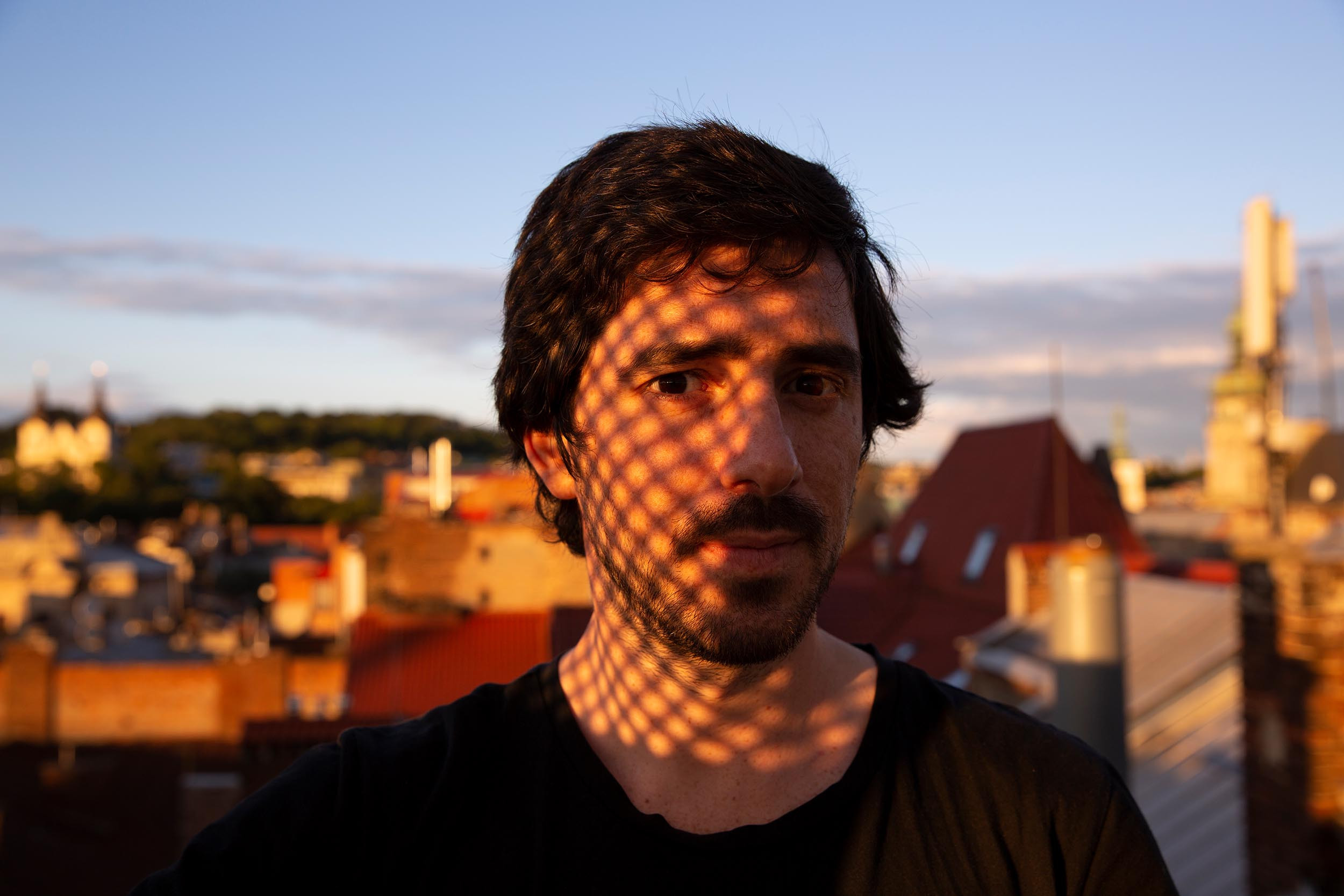
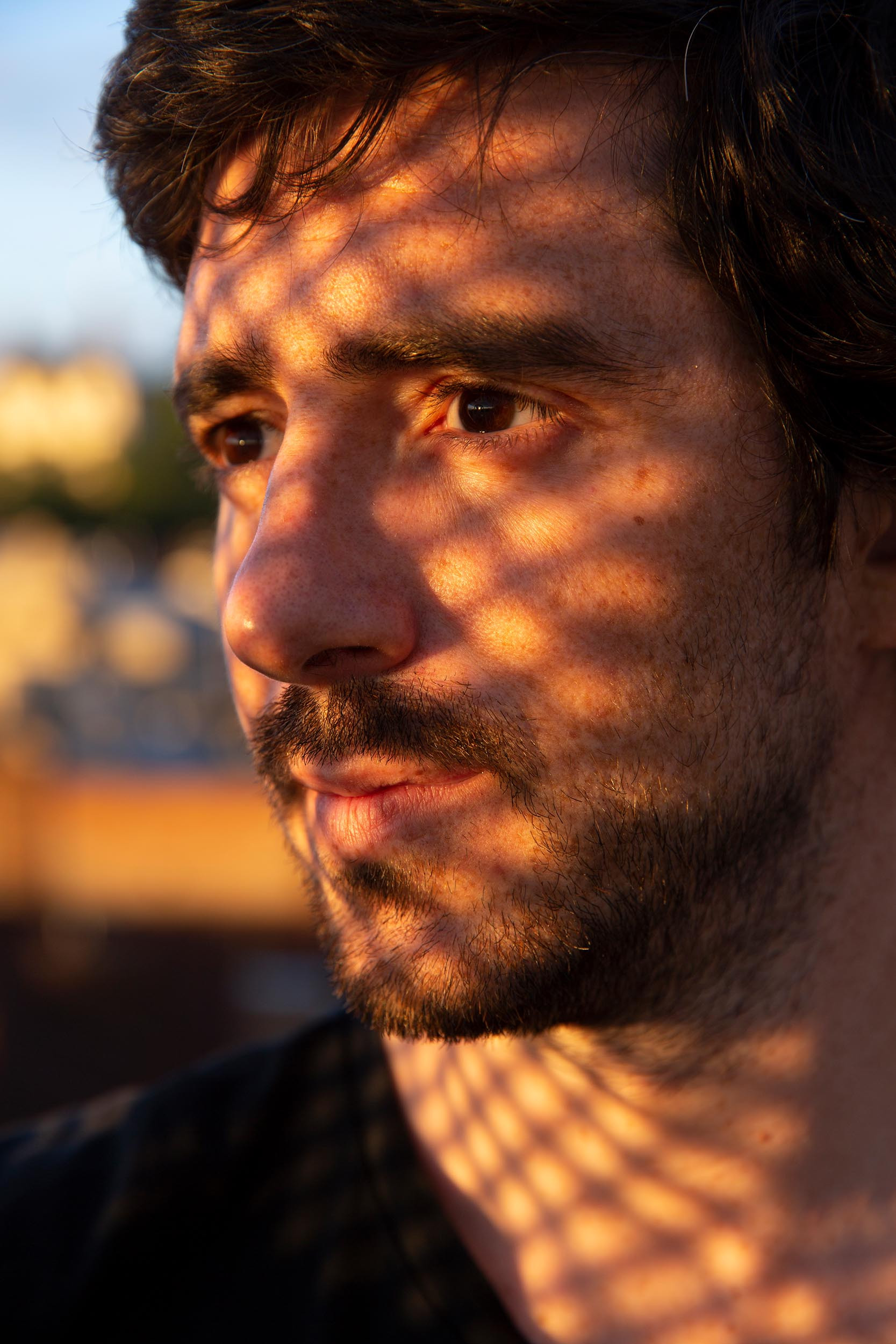
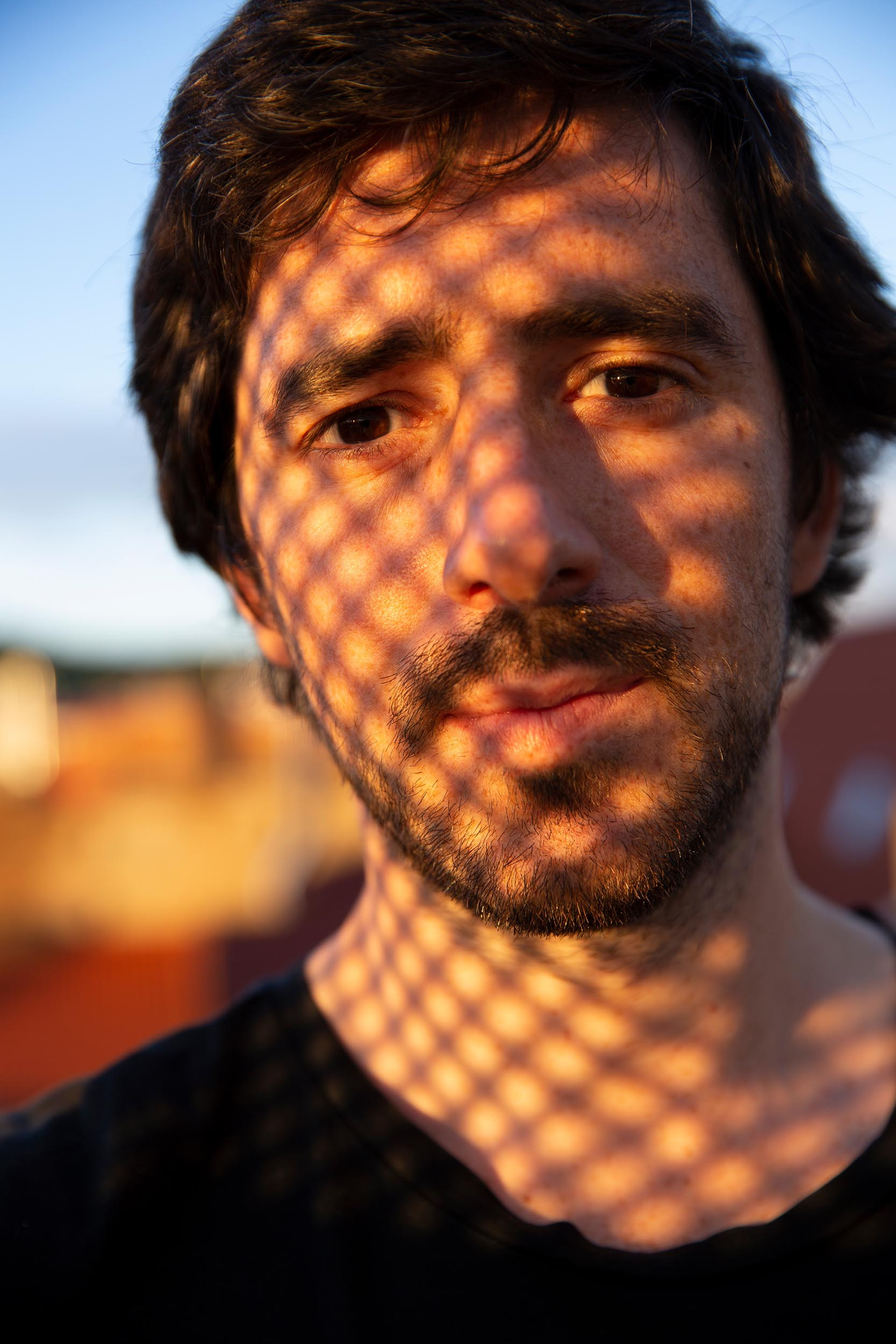
Recorded by Alyona Vorobiova
Translated by Katsiaryna Khinevich
Photographed by Anna Bobyreva
